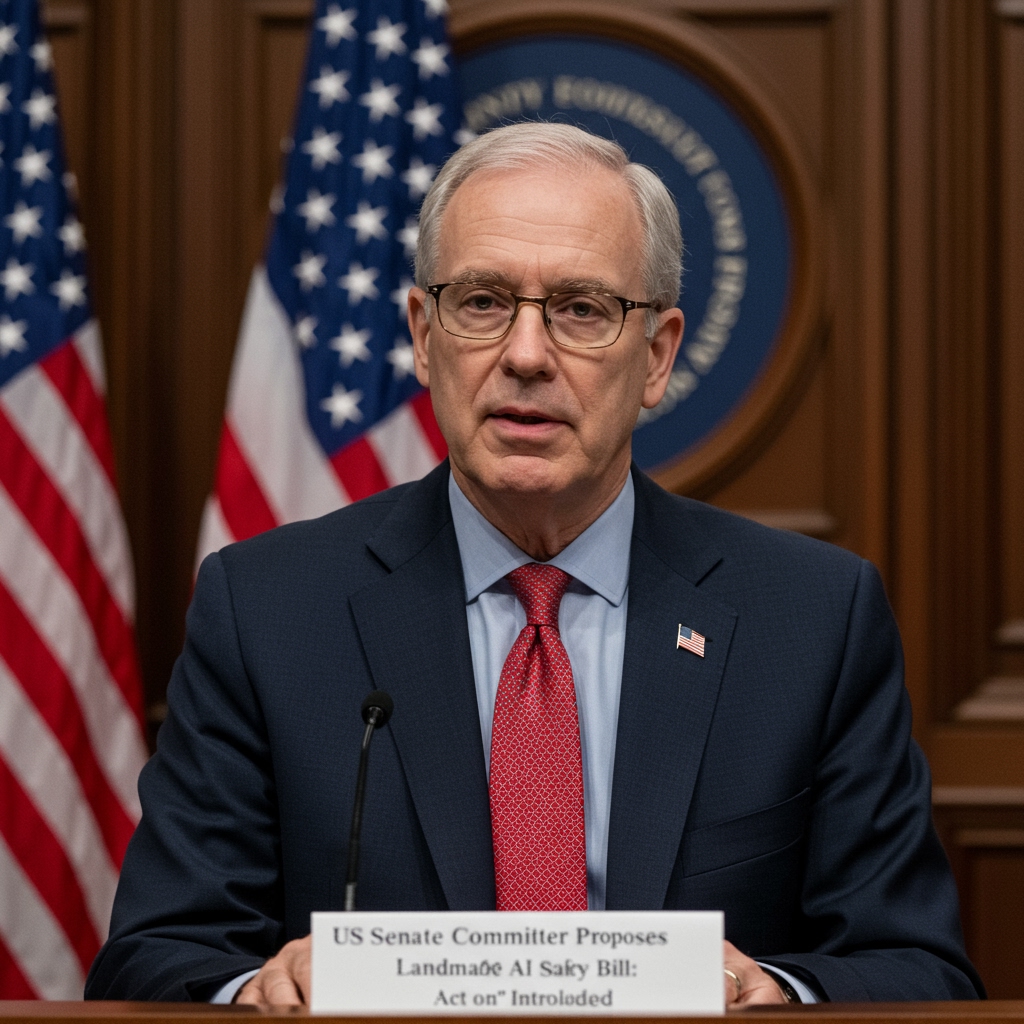US Senate Committee Proposes Landmark AI Safety Bill: \”AI Accountability Act of 2025\” Introduced
A key US Senate committee today introduced sweeping legislation aimed at establishing the first comprehensive federal framework for artificial intelligence safety and transparency in the United States. The bill, tentatively titled the \”AI Accountability Act of 2025,\” represents a significant move by Congress to proactively address the rapid evolution of AI technology and its potential societal impacts. Lawmakers introducing the bill emphasized its core objective: fostering responsible AI innovation while implementing necessary safeguards to protect the public and build trust. The initiative reflects a growing consensus among policymakers regarding the critical need for proactive governance in the AI domain.
Bill Mandates Rigorous Safety Testing and Clear Content Labeling
The \”AI Accountability Act of 2025\” centers on two primary, critical requirements designed to enhance public confidence and mitigate AI-related risks. First, the bill mandates rigorous safety testing for advanced AI models. This testing would be required before these models are made publicly available, with the goal of identifying and mitigating potential issues such as algorithmic bias, security vulnerabilities, and the risk of generating harmful or deceptive outputs. While specifics would be detailed through future rulemaking, the legislative intent is clear: hold developers accountable for the inherent safety and reliability of their systems.
Second, the legislation directly addresses the growing challenge posed by synthetic media by requiring clear labeling for AI-generated content. This provision aims to ensure users can readily distinguish content created or significantly altered by artificial intelligence, whether it’s text, images, audio, or video. Such labeling is deemed crucial for effectively combating misinformation, deepfakes, and other forms of deceptive synthetic media that could undermine democratic processes, public discourse, and trust in digital information. Both mandates underscore a legislative push for greater accountability from AI developers and increased transparency for the end-user and the broader public.
Expanding Authority for the Federal Trade Commission (FTC)
A pivotal component of the proposed \”AI Accountability Act of 2025\” is the significant new authority it grants to the Federal Trade Commission (FTC). The bill empowers the FTC to serve as the primary regulatory body overseeing AI safety and transparency standards at the federal level. This includes conferring upon the commission the necessary authority to develop the detailed rules and guidelines required to implement both the rigorous safety testing protocols and the standards for clear AI content labeling outlined in the Act.
Furthermore, and crucially, the legislation explicitly authorizes the FTC to investigate harmful AI practices. This expands the commission’s existing mandate to specifically address concerns related to AI applications that could potentially be discriminatory, engage in deceptive behaviors, or otherwise violate consumer protection laws or pose risks to public welfare. By designating the FTC as the lead enforcement agency, the bill leverages an established federal body with existing expertise in regulating emerging technologies and protecting consumers, adapting its role to the unique and complex challenges presented by artificial intelligence systems.
Varied Reactions from Industry and Experts
The unveiling of the \”AI Accountability Act of 2025\” has generated a range of reactions from key stakeholders within the AI ecosystem. Experts specializing in AI governance, ethics, and policy have largely lauded the move, characterizing it as a vital and necessary first step towards establishing meaningful federal AI regulation in the United States. They strongly argue that mandatory safety testing and transparency requirements are indispensable tools for managing the systemic risks posed by advanced AI and for building the public confidence essential for the technology’s long-term beneficial integration into society. Many experts view the empowerment of the FTC positively, seeing it as providing a dedicated enforcement body with the necessary mandate.
Conversely, tech industry groups have articulated significant concerns regarding the potential implications of the proposed legislation. While generally supportive of the overarching goals of promoting safety and transparency, these groups express apprehension about potential innovation impacts that could arise from regulations they perceive as potentially overly prescriptive or burdensome. They specifically highlight worries about substantial compliance costs that could be imposed, particularly on smaller companies and startups operating with limited resources. Industry representatives often advocate for more flexible, risk-based approaches, possibly involving industry-led standards or voluntary frameworks, rather than broad, mandatory requirements. These differing perspectives underscore the fundamental ongoing debate surrounding how best to balance regulatory oversight aimed at mitigating potential harms with the imperative to encourage technological advancement and maintain competitiveness in the global AI race.
The Legislative Path Ahead in Congress
The introduction of the \”AI Accountability Act of 2025\” marks the beginning of its legislative journey. The bill will first be deliberated and potentially amended within the key US Senate committee where it was introduced. Should it successfully pass out of committee, it would then proceed to the full Senate for debate and a vote. For the bill to ultimately be enacted into law, it must also pass the House of Representatives, and any differences between the versions passed by the two chambers would need to be resolved in a conference committee before it can be sent to the President for signature. The path forward for this landmark AI legislation will undoubtedly involve complex negotiations and significant debate over the specifics of implementing federal oversight for this rapidly evolving technology.





